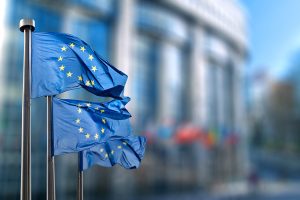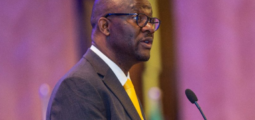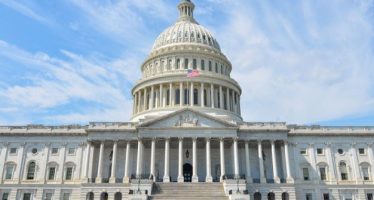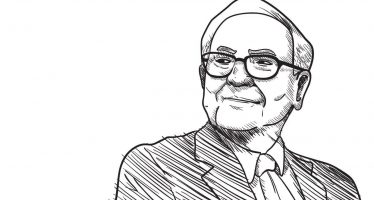EU Cements Union and Recovery Package
 Union leaders have agreed on a landmark €750 billion post-corona EU recovery package that authorises the European Commission to issue bonds for the first time ever. Hailed as a ‘historic day’ for Europe by President Emmanuel Macron of France, the deal was reached after four days of, at times, acrimonious negotiations that pitted the Paris-Berlin axis against a Dutch-led bloc of fiscally conservative countries coalescing around the Frugal Four.
Union leaders have agreed on a landmark €750 billion post-corona EU recovery package that authorises the European Commission to issue bonds for the first time ever. Hailed as a ‘historic day’ for Europe by President Emmanuel Macron of France, the deal was reached after four days of, at times, acrimonious negotiations that pitted the Paris-Berlin axis against a Dutch-led bloc of fiscally conservative countries coalescing around the Frugal Four.
With the support of Finland and the three Baltics, the ‘frugals’ managed to extract significant concessions, including a larger rebate on their remittances to Brussels. They also succeeded in reducing the volume of grants and subsidies to troubled member states from the €500 billion initially proposed by the European Commission, and seconded by Germany and France, to €390 billion. The remaining €360 billion is to be made available as long-term credit to member states.
The leaders gathered in Brussels also signed off on the EU’s next seven-year budget. At the request of the Frugal Four, a number of programmes were either downsized or eliminated. Dutch Prime Minister Mark Rutte was pleased with the last-minute inclusion of an ‘emergency brake’ that allows any member state to raise concerns over another’s failure to implement a reform agenda and ask for the temporary suspension of payouts from the recovery fund. Rutte had made his support for the deal conditional on weaker member states such as Italy and Spain embracing a comprehensive and meaningful set of structural reforms to modernise their economies and rebalance their national accounts.
As they sought to break the stalemate over the weekend, EU leaders offered Rutte a Dutch treat of sorts. The Dutchman was told his country could keep its rebate on EU remittances if only he’d sign on the dotted line.
A veteran of EU negotiations, Rutte flatly refused to be bribed with his own money and, with the full backing of four other ‘frugals’ (Finland has now joined the original four), insisted in demanding iron-clad guarantees that recipients of EU largesse implement a reform agenda and adhere to the rule of law. The latter demand incensed Hungarian Prime Minister Viktor Orbán who recognised a dig at his own populist style of politics.
Orbán, who regularly professes a great admiration for Atilla the Hun, blamed ‘the Dutchman’ for the disarray in Brussels and wondered why Rutte ‘hates’ him. The Dutch prime minister’s demand that each member state be granted veto power over disbursements from the EU recovery package was, however, a bridge too far.
Queried by President Macron on why the European Commission should not be entrusted with monitoring compliance, Rutte deadpanned that the commission had been unwilling to act in the past against member states found in breach of EU fiscal rules. Macron too recognised a dig and, with his dignity slightly offended, threatened to walk out the room. Later that Sunday, Macron reportedly asked EU Council President Charles Michel to consider withdrawing the offer regarding the Dutch rebate. That also didn’t fly as Michel recognised that Rutte was willing to shoulder the blame for the summit’s eventual failure and seemed ready to call the Paris-Berlin axis’ bluff.
At the conclusion of the summit, German Chancellor Angela Merkel said that the rule of law mechanism included in the final deal was not directed at ‘one or two countries’ in particular but applies equally to all member states. Both Poland and Hungary had voiced strong objections to the provision but were ultimately strong-armed into acceptance.
The remarkable bit about the showdown in Brussels is that the Dutch were not merely putting on a show of strength but seemed actually determined to stop France and Germany from imposing their will on smaller member states. As the fifth-largest EU economy, and one of its richest, The Netherlands has become the natural leader of an increasingly powerful bloc that includes other ‘frugals’ Austria, Denmark, Finland, and Sweden – and counts with covert support from the three Baltics.
As one of only six EU member states boasting a coveted AAA credit rating from all three global credit agencies, the Dutch government is unwilling to lend the country’s creditworthiness to underwrite an exercise in European solidarity – unless its strict conditions are met. Moreover, the parliament in The Hague has indicated in no uncertain terms that it will not greenlight any commitment that exposes the country to increased credit risk. Thanks to its ability to issue bonds at negative interest rates, the public debt sustained by The Netherlands – barely 48 percent of GDP before the pandemic – has become a source of income.
Though far from perfect, the deal now sealed shows that the EU can act with both speed and resolve to address major issues facing the bloc. The marathon negotiations also underscore the democratic nature of the union and the inability of its larger member states to impose their will on the others.
Finally, the Dutch have now formally taken on the role of bogeyman previously entrusted to the UK. The Hague also severed its long-standing alignment with Berlin, no longer willing to follow the German lead after Merkel abandoned her commitment to fiscal prudency in favour of solidarity with troubled southern member states. Effectively leading a bloc of smaller yet financially secure member states, the Dutch have managed to avoid the power vacuum that followed the UK’s exit from benefitting France and Germany. This helps explain why both Macron and Merkel were barely able to hide their anger at Rutte’s refusal to be intimidated or cave under pressure.
Monday’s agreement seeks to redress the EU’s absence from the first phase of the viral outbreak when nearly all member states sidelined Brussels and adopted national responses to the pandemic, closing borders and ignoring spending caps and debt ceilings. Whilst the European Central Bank (ECB) acted quickly to provide ample liquidity, the EU only regained the initiative after the worst of the outbreak had passed and attention shifted to rebuilding economies shattered by the pandemic. For all its detractors, the EU has, however, shown that 27 very different countries can, after four days of diplomatic wrangling, agree on €1.8 trillion in spending. That represents a remarkable feat and a welcome show of unity in a fractured world.
You may have an interest in also reading…
When It Pours, Rainy Day Funds Help – A Little
Both the United States and the United Kingdom have joined the increasingly crowded ranks of countries sustaining a debt load
Uzbekistan ‘s Enter Engineering announces Covid years project updates and operations guidance
According to Ulugbek Usmanov, General Director at Enter Engineering: “Enter Engineering is involved in a variety of projects central to
Business in Times of Corona: Wise Words from Omaha
The life lesson imparted by the Oracle of Omaha does not require much deciphering: Cash is King. Long criticised for


















































































